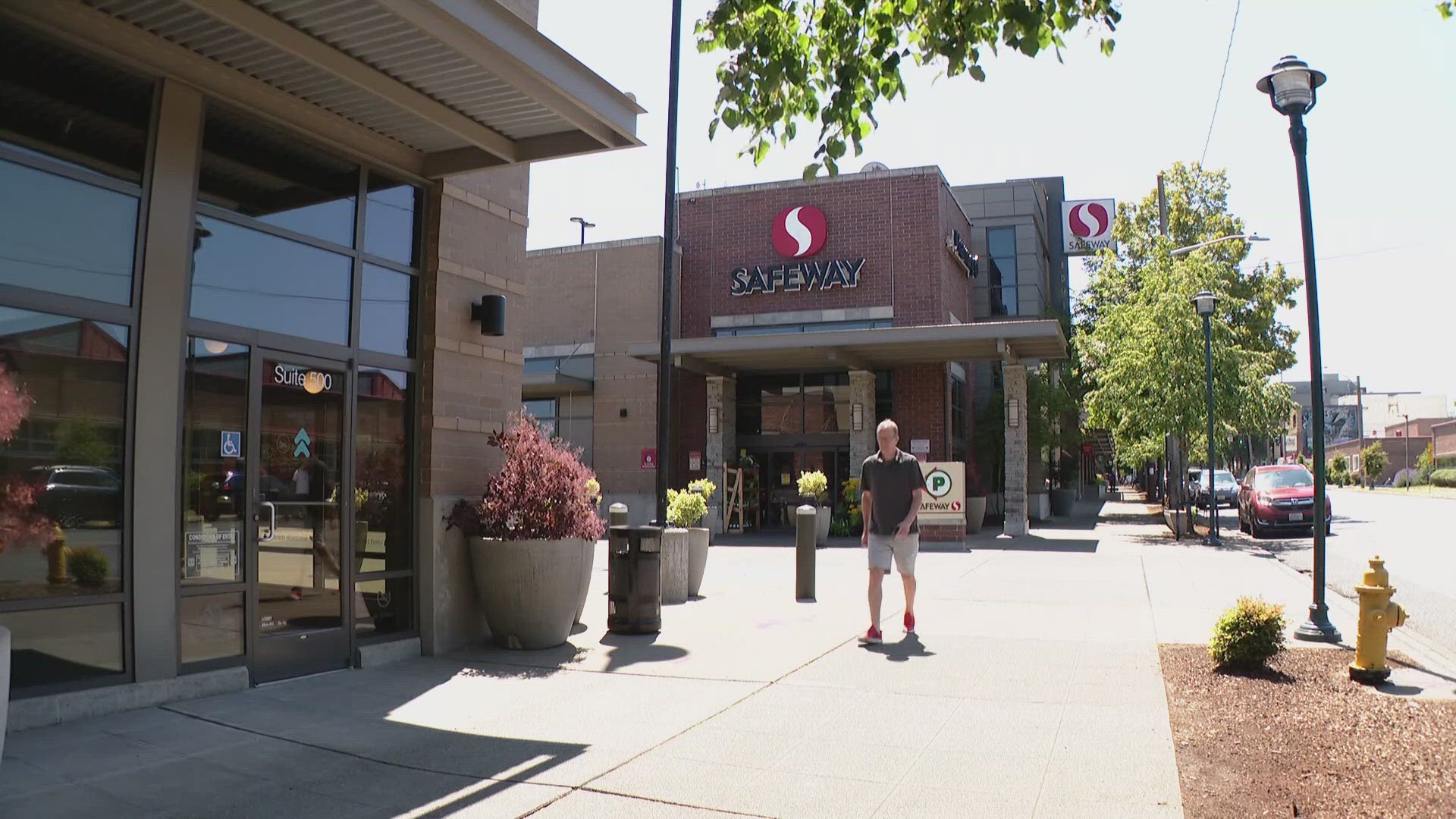SEATTLE — Grocery store chains Kroger and Albertsons have released a list of hundreds of stores across the country that the companies plan to divest as part of a proposed merger.
The list includes 124 stores in Washington, as well as one distribution center. Washington has the most stores that could be potentially impacted, followed by 101 stores in Arizona and 91 stores in Colorado.
A full list of all the impacted stores is available online. The list includes Haggen, Safeway and QFC grocery stories in dozens of Washington cities from Bellingham to Vancouver, Spokane to Seattle. The impacted distribution center is at 3520 Pacific Ave. S. in Auburn.
Kroger and Albertsons own more than 50% of the grocery stores in Washington state, according to the Washington State Attorney General (AG), operating more than 300 locations. Kroger is also the owner and operator of brands like Fred Meyer and QFC, while Albertsons owns Safeway and Haggen.
C&S Wholesale Grocers had previously agreed to buy all of the locations. C&C Wholesale Grocers operates corporate and independent franchise grocery stores in the Midwest, South and Northeast, including Piggly Wiggly Supermarkets and Grand Union Supermarkets.
In a statement, Kroger said the "comprehensive divestiture plan with C&S is critical to bringing the meaningful and measurable benefits of our merger with Albertsons to associates, customers and communities across America."
Kroger added that "C&S committed to ensuring zero stores will close as a result of the merger, all frontline associates will remain employed, all existing collective bargaining agreements will continue, and associates will continue to receive industry-leading benefits alongside bargained-for wages. C&S's strong operational focus coupled with its experienced management team and financial resources will position it to successfully operate divested stores for years to come."
The company also added that it is working "closely with C&S to ensure a seamless transition of ownership for all divested stores and supporting operational infrastructure."
The union representing grocery store workers says the merger is far from a done deal noting the legal challenges aim to to block it.
"We just believe that this is a really bad deal," said Sean Embly with UFCW 3000. "We believe that is going to lead to the ability to have higher prices and lower wages for workers because there will be less options for workers to go and seek employment within the grocery industry."
The $20 billion merger between Kroger and Albertson’s was first announced in 2022. Since then, the Federal Trade Commission and several states, including Washington, have sued to block the merger.
A merger between the grocery chain giants would limit competition in Washington state, give consumers fewer choices and hike grocery prices, according to a lawsuit aimed at stopping the deal filed by the AG's office in a King County superior court in January.
The case in Washington is set to begin trial Sept. 16.

